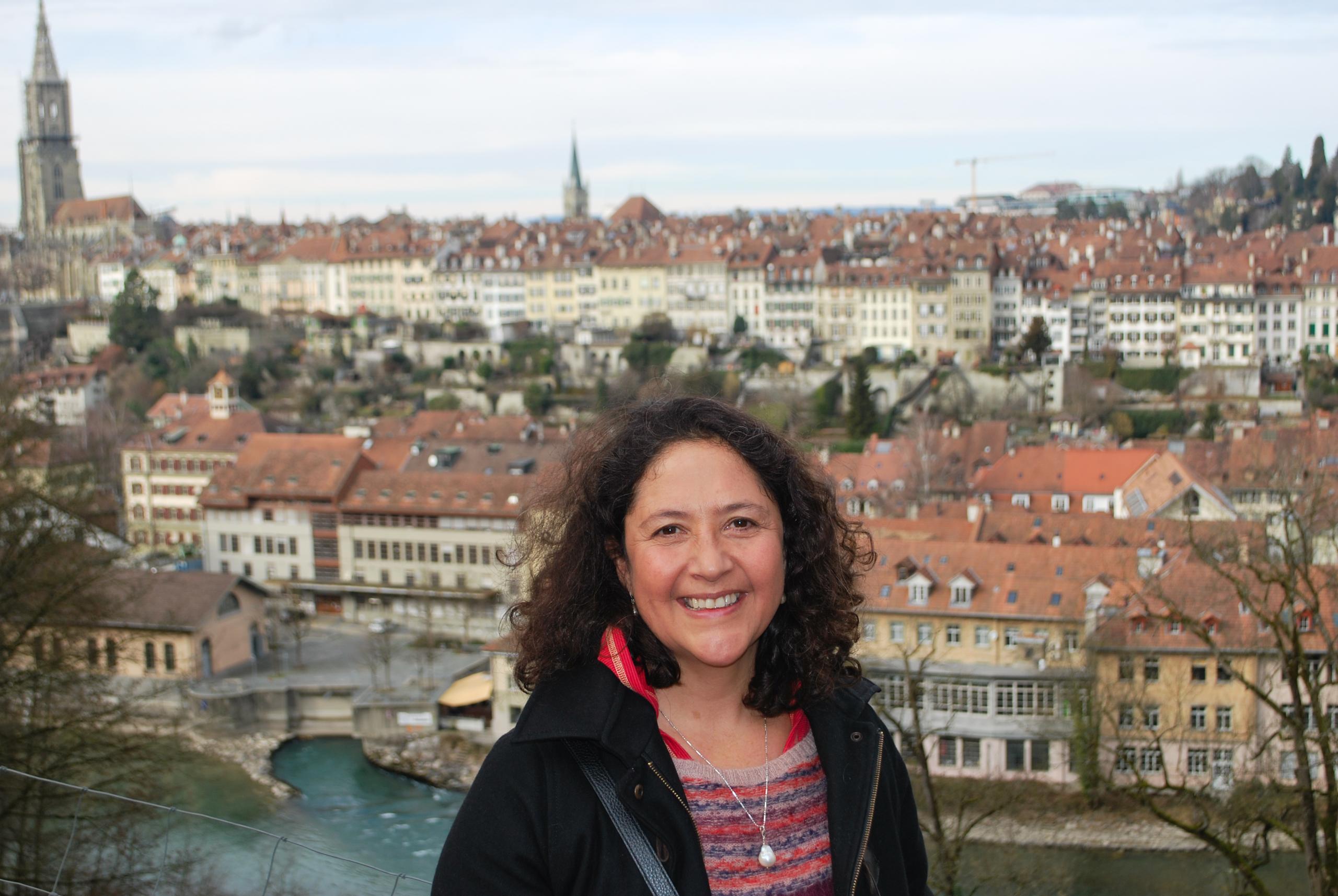Viewpoint: Yolanda Gama of Mexico

Originally from Mexico City, Yolanda Gama moved to Switzerland 23 years ago, a newlywed married to a German citizen. Now she is 55 years old, with degrees in food engineering and biochemistry, and a moderator for the project ‘Together into the Future’.
“I’ve led maybe seven or eight roundtables on different subjects,” she says, “and I think people are interested in taking part.”
Entering the programme was a logical extension of her interest in nutrition, says Gama. “I was already giving some nutrition courses for elderly Spanish-speaking people in Bern, and I thought, well, it sounds interesting, so why not try it?”
Most of her roundtable participants are 60 to 70 years old, Gama says, but many told her they don’t consider themselves old. “And I said, okay, then this is a roundtable for you. Because it’s for people who are coming into old age active and want to do something good for their next years.”
Every subject presented in the programme “gives you a different aspect of the elderly,” says Gama. “Every single area presents different challenges and requires a different approach.”
People react differently when the topic is dementia or entering an old people’s home, she says. “Nutrition and movement are very clear. But in the other aspects you go into their private sphere, where they have to confront their expectations for old age.”
Gama’s roundtable participants are a diverse group, coming from Colombia, Eduador, Chile, Spain, Mexico, Paraguay, and Uruguay. “There’s a big group of Latin American people who are growing old in Switzerland,” she says. “This is something new I think.”
There is also a group of Spanish people who came in the 1970’s for work and stayed. They are now around 70. “Most of them already have families here. And the same starts to happen as well with the Latin Americans who came originally mainly through marriage into Switzerland,” Gama says.
Gama herself feels integrated – to an extent. “I cannot imagine myself being Swiss. I think I’m very Mexican still. But part of the integration process is to really find what makes me belong in this country, to these people. I think integration is feeling, ‘I’m part of them because I’m like them, but I have my identity and my original way of being from my family and my culture.’ ”

In compliance with the JTI standards
More: SWI swissinfo.ch certified by the Journalism Trust Initiative








You can find an overview of ongoing debates with our journalists here . Please join us!
If you want to start a conversation about a topic raised in this article or want to report factual errors, email us at english@swissinfo.ch.